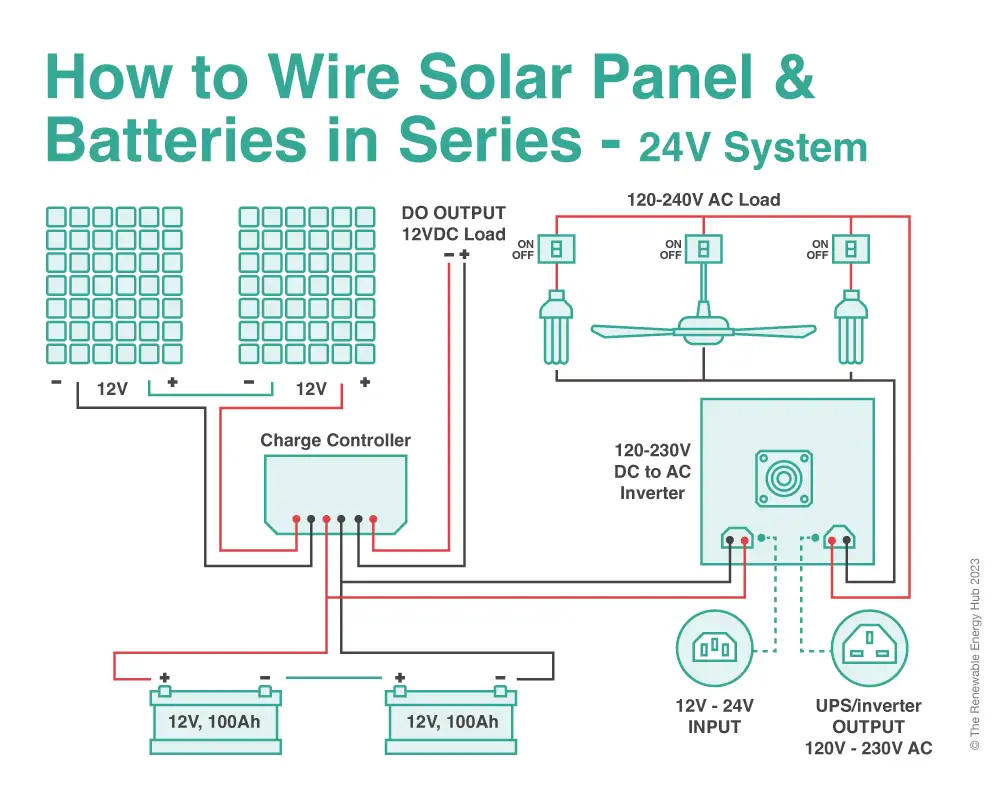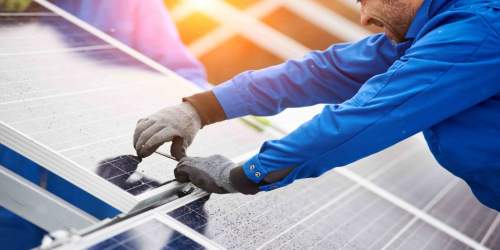Read Time : 3 Minutes
Can I build my own Solar Panel System - DIY Solar
Nothing is impossible or so they say, but how easy it is to install your own solar PV panels depends on how handy you are. If your tool kit is a Phillip’s head screwdriver and a saw in the kitchen cupboard cease your plans now. Instead, head over to our supplier’s database and put the kettle on. If, by contrast, you know what a mitre joint is, you’ve got a Toolstation trade card, and a numbered rack for your spanners, read on.
Before we go any further, let’s talk about the electric elephant in the room. Installing solar power requires messing about with electricity and we’ve all seen the video with the kid and his kite (if not, you get the idea). Therefore, our advice would be to make sure you consult an electrician before embarking on your project. You may end up choosing to do most of the installation yourself but employing an electrician to complete the project.
Either way, you’ll save stacks on a professional installation.
Another factor you need to consider is the various schemes and subsidies on offer and how a DIY installation may affect your eligibility.
Smart Export Guarantee
The first incentive you may want to think about is the Smart Export Guarantee (SEG). Under SEG, private solar generators sell their excess energy back to the grid. Indeed, SEG and its predecessor the Feed In Tariff (FIT), are one of the best reasons to opt for solar in the first place. The revenue streams these systems offer are part of what makes solar power so attractive. You should know then, that to qualify for the Smart Export Guarantee, or FIT for that matter, requires MCS certification.
To be precise, your system needs certification under the Microgeneration Certification Scheme (MCS). MCS is the government’s way of covering its own back against rogue solar installers. Now, you may be able to find someone with the appropriate accreditation to sign off on your system, but this can be a big ask and it will cost you. The alternatives are to either do without the SEG or take the accreditation course yourself.
The course takes about four to six weeks depending on the provider and again there will be a cost. To be fair, this is only an option for individuals looking at it as a career move.
0% VAT Commitment
Whether the 0% VAT Commitment covers your DIY solar installation is unclear. Today, the normal 20% rate of VAT doesn’t apply to solar installation, but the legislation is vague. It’s not obvious whether that saving depends on having your system professionally installed. Check here for more details.
Is it worth going ahead without incentives like SEG and the 0% VAT commitment?
It’s a good question and one you’ll need to decide for yourself. If you’re only adding a small system suited to your needs and you know what you’re doing, then a DIY installation can still make sense. Or, if you’ve picked some second-hand gear cheap and you’re not likely to have much excess energy then again it could be viable. Maybe you have a business you can use to claim the 0% VAT and you know someone who can get you the MCS paperwork. If that’s the case, then fill your boots.
Whatever you decide though, make sure you’ve done your homework.
What DIY options are out there?
Depending on what kind of system you want the options for DIY solar PV systems include most of the market and a couple of left-field options. We brushed over one of these options above i.e., second-hand or salvaged solar systems, but there are also smaller portable units available now.
Used panels make a lot of sense if you’re on a budget. With efficiency rising all the time, there’s a real drive for some consumers to get the best system they can. This often means they have little use for their old panels. The fact there’s almost no value in second-hand solar panels is bad news for them and good news for you. Of course, you won’t pay VAT on second-hand solar systems either, so these units can work out VERY cheap.
Portable systems represent the other potential DIY solar PV systems. Intended for outdoor life, mobile homes, and hobbyists, their efficiency, ease of use, and price point have become attractive recently. Indeed, some of them now occupy a grey area where they’re ideal for smaller households and those unsuited to traditional solar setups.
The final hurdle
If you’re sure about it and want to ahead with your own installation there’s one tick left on the checklist, permission. Getting the go-ahead should be easy enough. Though you may want to clear your plans with your neighbours, relevant local authorities, energy supplier, and maybe your landlord/housing association etc.
OK, so we’ve cleared the red tape what’s next?
By now, we’re assuming, you’re tooled up, you’ve got the gear, the green light, and you’re ready to go. All that remains then is doing the thing. Installing a solar system requires following a simple eight-step checklist as follows:
- Erect your scaffold and make your roof safe: depending on your roof you may get away with a scaffold tower. You can skip this section if you’re going for a ground installation.
- Add the roof anchors: solar panels won’t stay up with gaffer tape. Securing them properly means anchoring them to your roof.
- Stabilising the panel mounts: once you’ve got your anchors secured it’s time to secure the racks that hold the panels themselves.
- Mounting the PV panels: with the racks securely in place all that’s left to do on the roof is fitting the panels themselves. These parts are all mass produced and they’re simple enough to install.
- Wire the panels to the inverter: at this stage, we recommend getting the advice of an electrician. Get this wrong and the whole thing could go up in smoke.
- Connect the inverter to the grid: remember when we said ask a sparky? Well, this is the bit where you REALLY need to consult an electrician. This step involves you plugging in your latest DIY project to the National Grid. Remember the kid with the kite?
- TEST EVERYTHING: sure, you should have tested everything as you went along. Before you plug in the whole show though, maybe it’s time to call that nice electrician?
- Engage happy dance: assuming, of course, you’re not already doing the electric boogaloo courtesy of the National Grid. Now’s the time to sit back and admire your new system.
Below you will find a simple diagram for how to wire solar panels and batteries in series.

Find a local installer
Welcome to the biggest directory of UK renewable energy companies






 How Much do Solar Panel Systems Cost in 2024?
How Much do Solar Panel Systems Cost in 2024?







